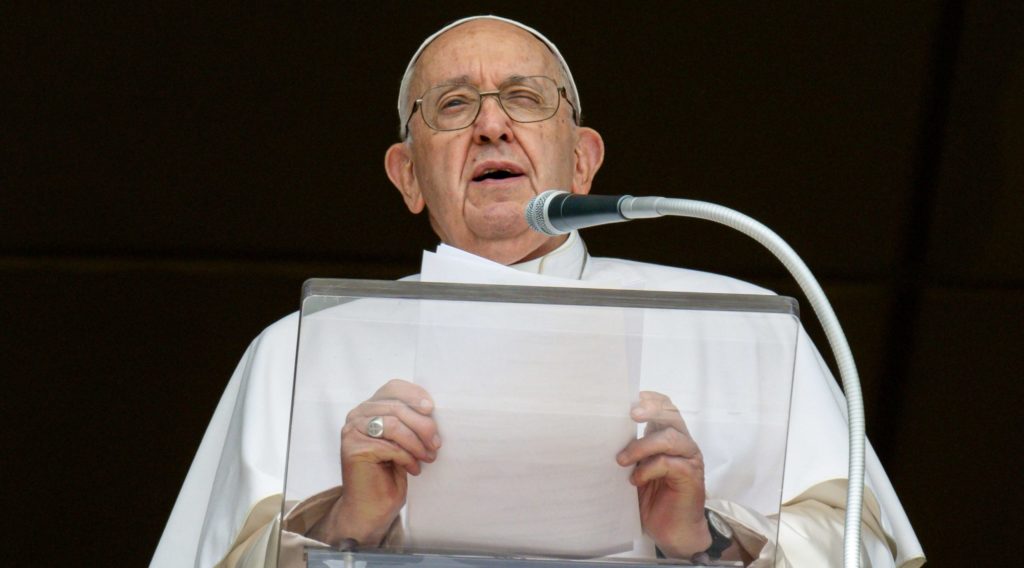Forgiveness, received freely and constantly from God, is a "fundamental value" for Christians that must be practiced and passed on to others, Pope Francis said.
"Forgiveness is the oxygen that purifies the air of hatred; forgiveness is the antidote to the poisons of resentment; it is the way to defuse anger and heal so many maladies of the heart that contaminate society," the pope said before praying the Angelus with some 20,000 people gathered in St. Peter's Square Sept. 17.
Reflecting on the day's Gospel reading from St. Matthew, in which Jesus tells St. Peter to forgive his brother not seven times but 77 times, Pope Francis said Jesus' response shows that "when one forgives, one does not calculate; that it is good to forgive everything, and always."
People are called to act "just as God does with us, and as those who administer God's justice are required to do: Forgive always," he said. "I say this a lot to priests, to confessors: Always forgive, as God forgives."
Pope Francis continued his reflection by looking at the Gospel parable in which a servant, cleared of debt by his master, sends a fellow servant to prison for failing to repay him a smaller sum. The servant is later punished by the master for his lack of mercy.
Like the master who canceled his servant's debt out of compassion, the pope said, God "acts out of love, and gratuitously."
"God is not bought, God is free, he is all gratuitousness," the pope said. "We cannot repay him but, when we forgive a brother or a sister, we imitate him."
"Forgiving is not, therefore, a good deed that we can choose to do or not do: forgiving is a fundamental condition for those who are Christians," he said. "By forgiving one another, we can bear witness (to God), sowing new life around us."
Pope Francis then invited the crowd in St. Peter's Square to think of someone who has hurt them and to ask God for the strength to forgive that person. "Let us forgive them out of love for the Lord. Brothers and sisters, this will do us good; it will restore peace to our hearts," he said.
After praying the Angelus, the pope mentioned his trip to Marseille, France, Sept. 22-24 for a meeting of bishops and government leaders from the Mediterranean region, a meeting that he said will give "special attention to the phenomenon of migration."
At the end of a week in which some 7,000 migrants arrived on the small Italian island of Lampedusa, overwhelming reception centers and available humanitarian resources, Pope Francis said that migration "represents a challenge that is not easy, as we also see from the news in recent days, but which must be faced together, since it is essential for the future of all, which will be prosperous only if it is built on fraternity, putting human dignity and real people, especially those most in need, in first place."

